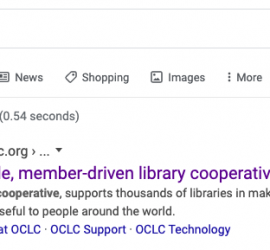Back in 1978, California passed Proposition 13, which began the defunding of many public services, including libraries. It was the beginning of what was branded right away as the Tax Revolt. The journal of academic librarianship understood it right away. An editorial by RMD in the July issue of that year referring to librarians said, “They must sell libraries to their communities.” After what was a stirring […]
Monthly Archives: October 2019
Today, I heard from Georgina Serey at the Chilean National Library. I had asked for a demo ID to use to wander around their holdings. This link shows how to get an ID for numerous online services. It turns out that one needs a national ID called RUN (Rol Único Nacional) first. The two most interesting features appear to guard against hacks. The first is that […]
While contacting libraries that use Blockchain to look for a demo, I came across this one. It is headquartered in Santiago, Chile. There are branches in other countries, and the English version of the acronym is ECLAC, which is the Economic Commission for Latin America and the Caribbean. In spite of the events in Chile at this writing, the site is still working. Their collection of […]
Earlier, I posted my translated excerpt of the paper linked below. The link leads to the IFLA site, which now has the original paper, along with the official English translation in its entirety. VERA LOBOS, Felipe and LAGOS LAGOS, Hernán (2019) Decentralizing Latin American library infrastructure: Testing and pilot implementation of a decentralized library lending system based on credentials of sovereign and interchangeable users built with Blockchain technology. […]
For libraries, Blockchain represents the opportunity to build their own networks. Beyond being independent of such entities as OCLC, libraries will be able to redefine relationships with patrons. The lessons of the past show how this opportunity can either define the future or be passed by. Here are the three main lessons from the past of Bibframe, Word and Linux. Agreement to act is necessary. Bibframe […]
This could also be viewed as a MARC (MAchine Readable Cataloging) timeline. The story of why MARC continues and why Bibframe failed illustrates that it is not enough for something to be better or even for everyone to agree that the old solution has outlived its usefulness. There also has to be an agreement, either from the top or bottom, to use the new solution. Photo […]

